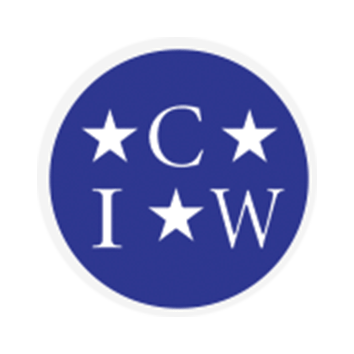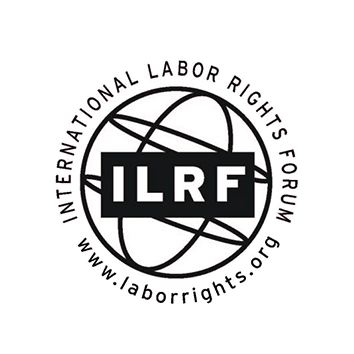
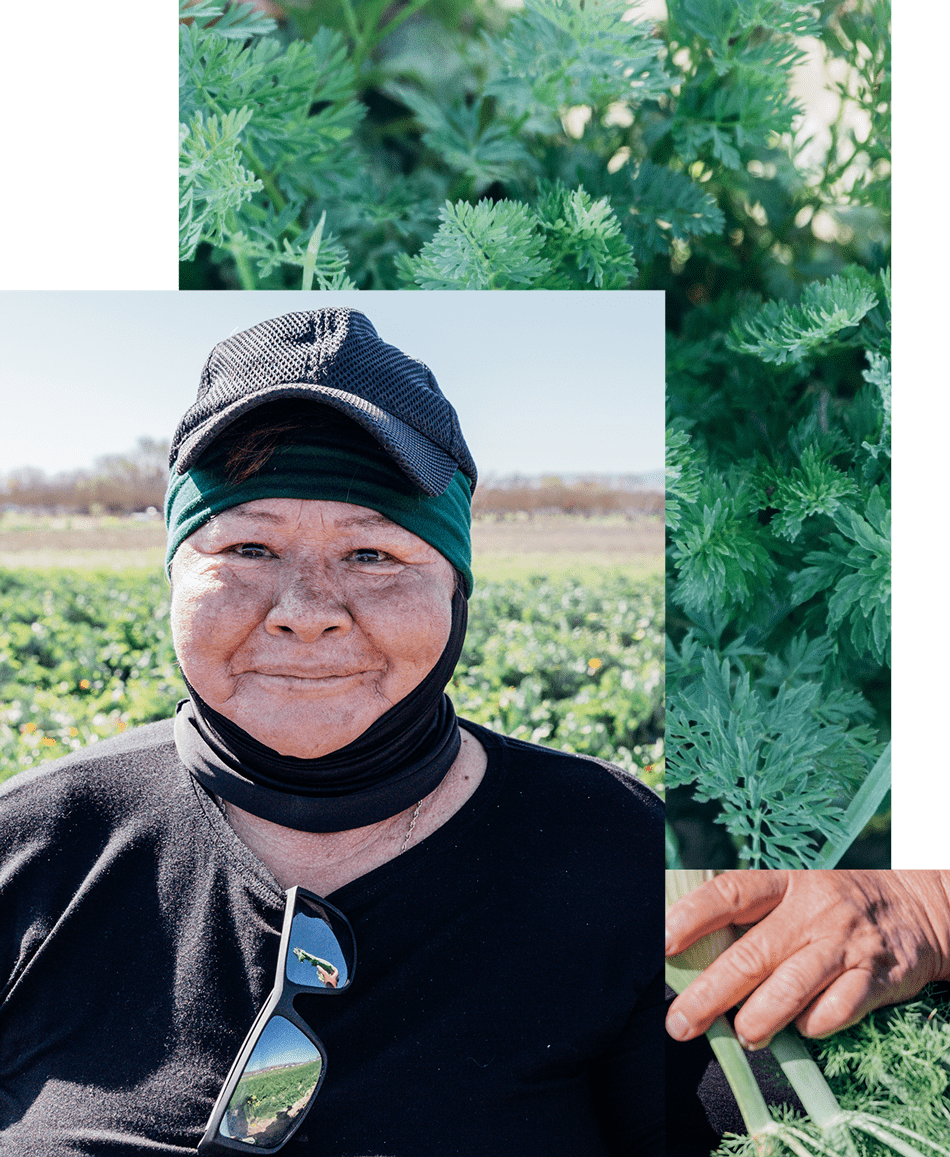
MEET A FARMER
MARIA CATALáN
To read this feature in Spanish, click here.
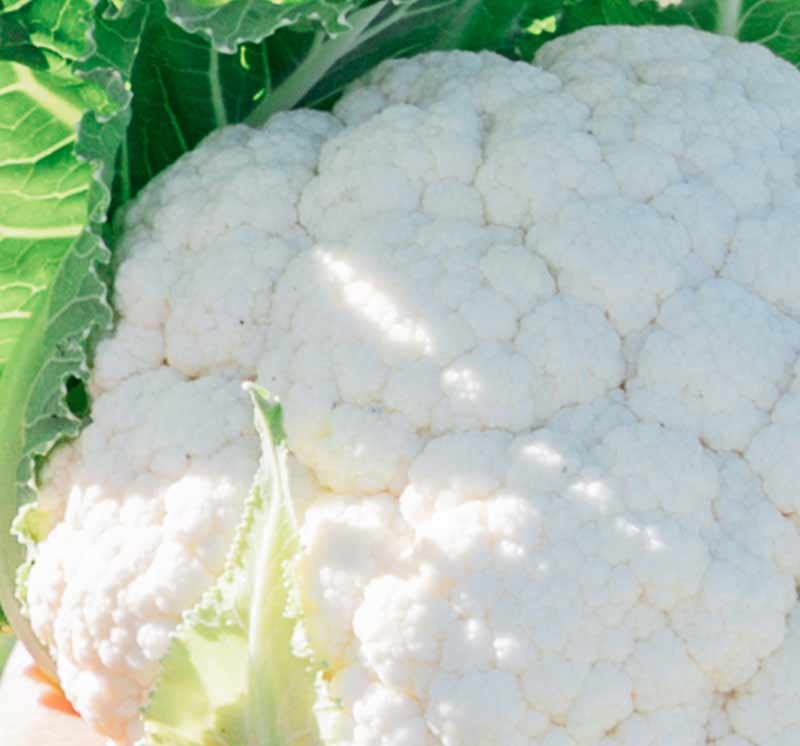
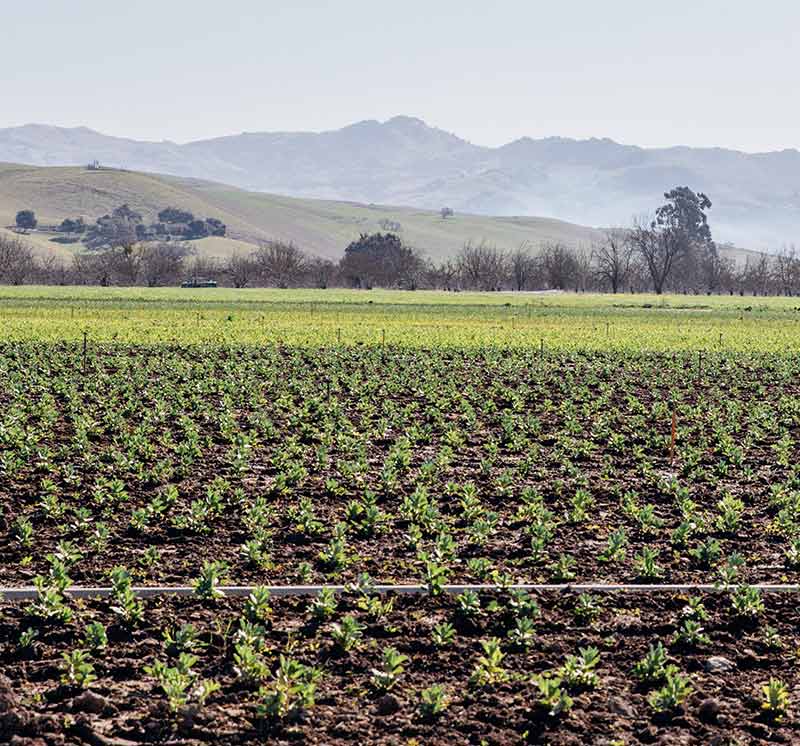
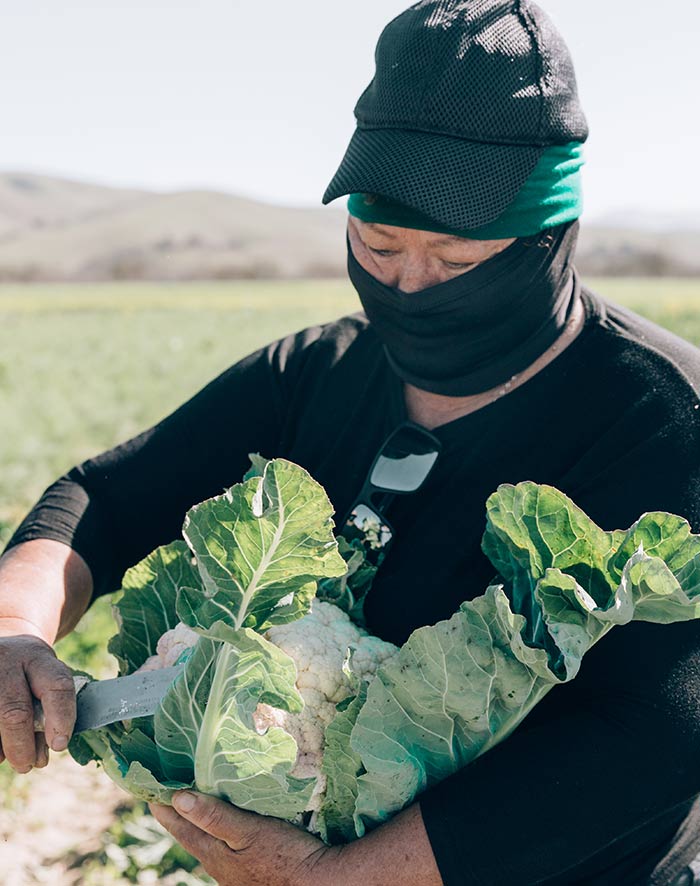
For Maria Catalán, stewarding land is ancestral. Her grandfather was a successful farmer and cattle rancher from Guerrero, Mexico, and migrated to Texas under the Bracero Program in the 1960s. The Bracero Program’s birth was due to a fear of food labor shortages during World War II. On August 4, 1942, the United States concluded a temporary intergovernmental agreement to use Mexican agricultural labor on US farms (officially referred to as the Mexican Farm Labor Program) and hired over 4 million Mexican farmworkers. This influx and exploitation of farmworkers not only saved the US food system from collapsing during the crisis but fueled the agriculture boom for generations after WW2. The Bracero Program set the precedent of the US food system relying on Mexican farm labor and the unethical exploitation of immigrant workers.
One by one, Maria’s family members migrated to the United States; she found herself alone with four children, yearning for her family and the desire to give her niños similar memories of food and familia. “More than looking for work, I came to America to be reunited with my family. I was searching for the memories of my childhood.”
At first, Maria was hesitant to move to the United States. Her mother warned her of the harsh truths of migrant work in a country that deems you invisible.
Maria moved to Salinas Valley, California, when she was 25 years old with four children, farm work experience, and a future of opportunity waiting to be harvested. For the next seven years, Maria worked as a field laborer for large-scale vegetable farms and lived the gruesome reality of industrial agriculture’s demand and dehumanization. “I cried a lot. We would work in the most extreme weather conditions: pouring rain, extreme heat, freezing winters. No matter what the weather looked like, they put us to work. They looked at us like we were machines, not humans. I had to harvest a box of broccoli per minute. Time was money for them, and it still is. I had to ask myself, if America was the place of opportunity, where was mine?”
Growers and labor contractors estimate an even higher number of 75 percent. The foundation of our food system relies on migrant workers. “We have a life that you wouldn’t want to believe. We are not recognized. We are invisible. Yet, if we didn’t exist. The food on your table wouldn’t exist.”
In 1994, Maria’s career took a turn when her mother’s knee was irreversibly injured from years of working in the fields. An organization aiding in the legal process of her mother’s injury invited Maria’s family to a 6-year organic farming training program at the Rural Development Center in Salinas. “I decided to commit to the education program out of my curiosity of organic farming. I thought that everything that grew out of the ground was organic. In the beginning, all of my siblings were part of the program but one by one, they dropped out. I stayed because I loved organic agriculture; this was how my ancestors farmed and I wanted to continue that tradition.”
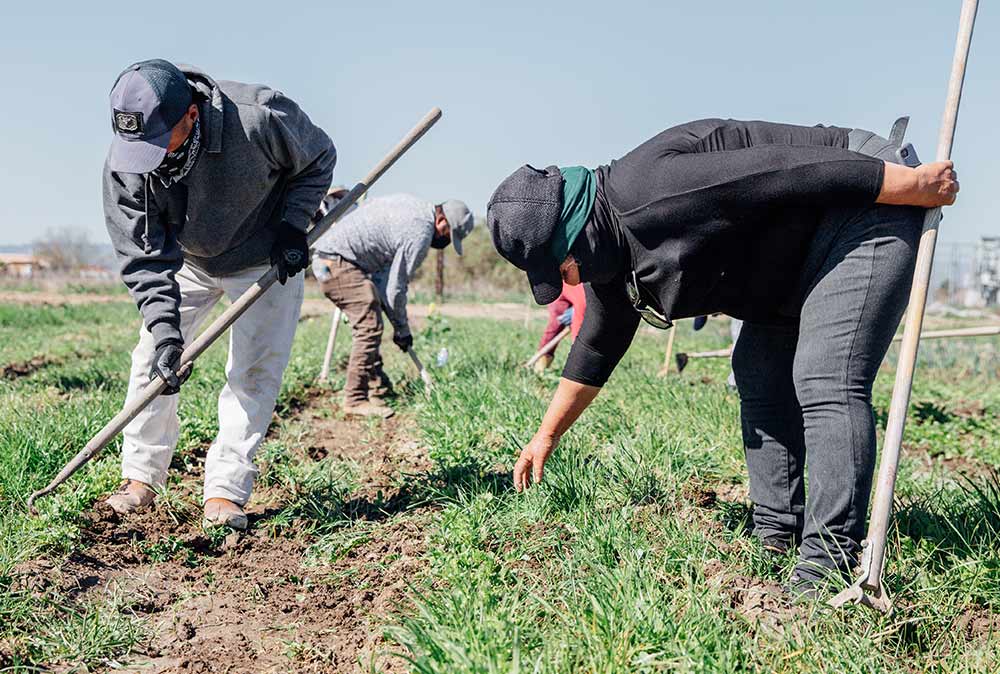
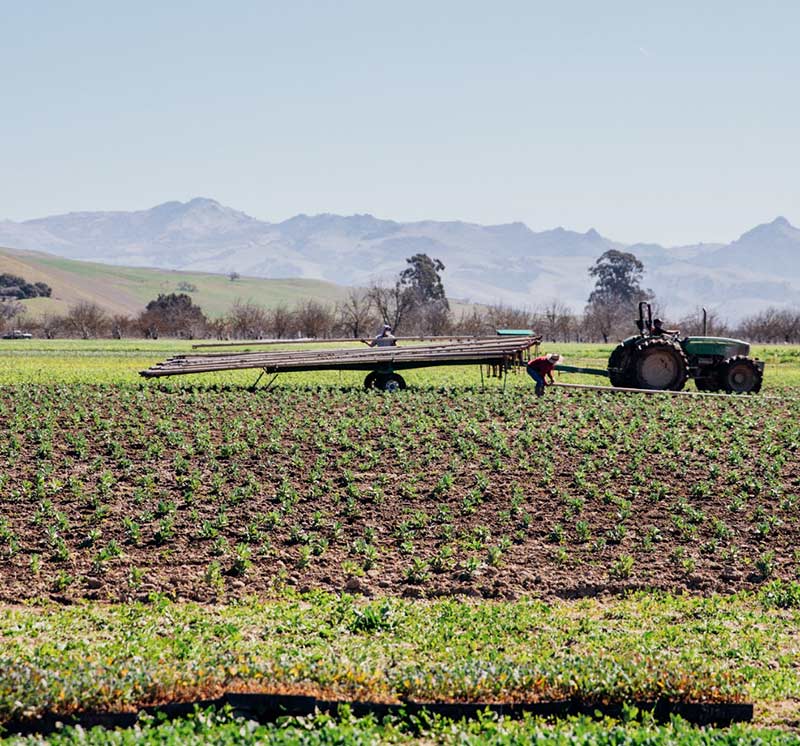
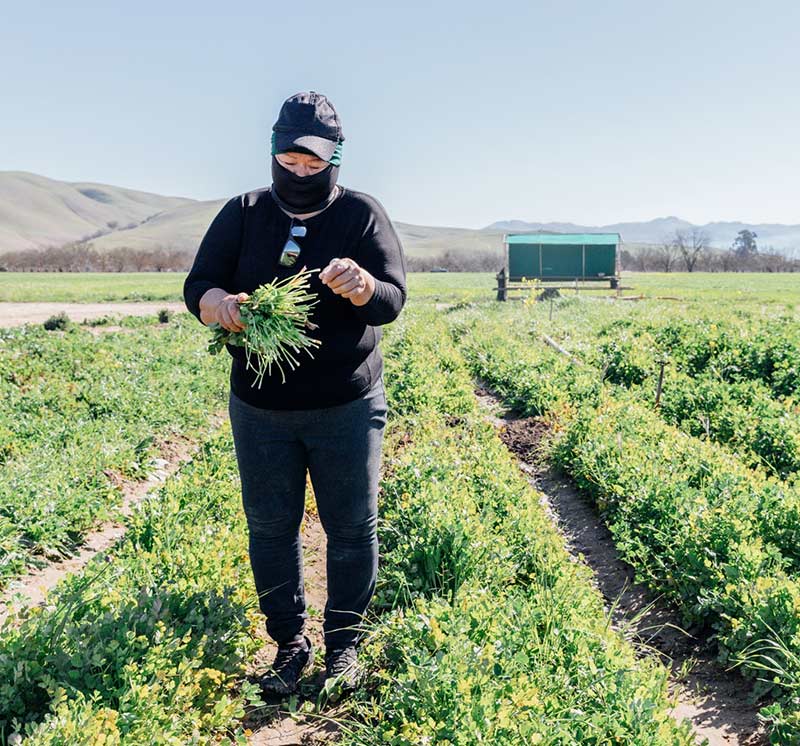
We cannot talk about an equitable food system without talking about land access. Migrant farmworkers in the U.S. do not have the opportunity, resources, or support to purchase and own land. Thus, they stay in the vicious cycle of industrial agriculture and its abusive field labor practices. Because the USDA is a federal organization, migrant workers are not eligible for federal money and grants.
Rain or shine, or even global pandemic, migrant workers are in the fields sustaining our food systems. For many migrant workers, the fact that they are both essential and illegal during COVID-19 is an irony that exemplifies our oppressive food system. “We can’t “stay home” like everyone else in the pandemic. We cannot protect ourselves, and we are dying feeding America’s people.”
Maria’s younger brother, who worked in vegetable transportation, lost his life to COVID-19. “My brother died from coronavirus. He gave his life to provide food for this country. It’s tragic. He was my younger brother and I always thought that I would be the first to go. This is the reality of my people during COVID-19, we are dying to sustain this system.”
According to the New York Times, “In California, food and farmworkers are more likely to die from COVID-19 than in any other industry.” UC Berkeley conducted a study with Clinica de Salud del Valle De Salinas (CSVS) to highlight how COVID-19 affects Salinas Valley, also known as “America’s Salad Bowl.” Salinas Valley is home to over 500,000 farmworkers, many of whom are Mexican immigrants and undocumented workers. Food insecurity, low wages, crowded living quarters, and fear of deportation result in resistance to seeking medical care. These communities are more likely to have compounding medical conditions such as obesity, hypertension, and diabetes which all heighten the contraction of COVID-19. According to UC Berkeley’s study, “A total of 140, or 13%, tested positive for COVID-19 using polymerase chain reaction (PCR) testing. The positivity rate was 28% for symptomatic individuals and 8% for asymptomatic individuals. Alarmingly, more than half or 58%, of individuals who were both symptomatic and infected said that they continued to go to work while sick.”
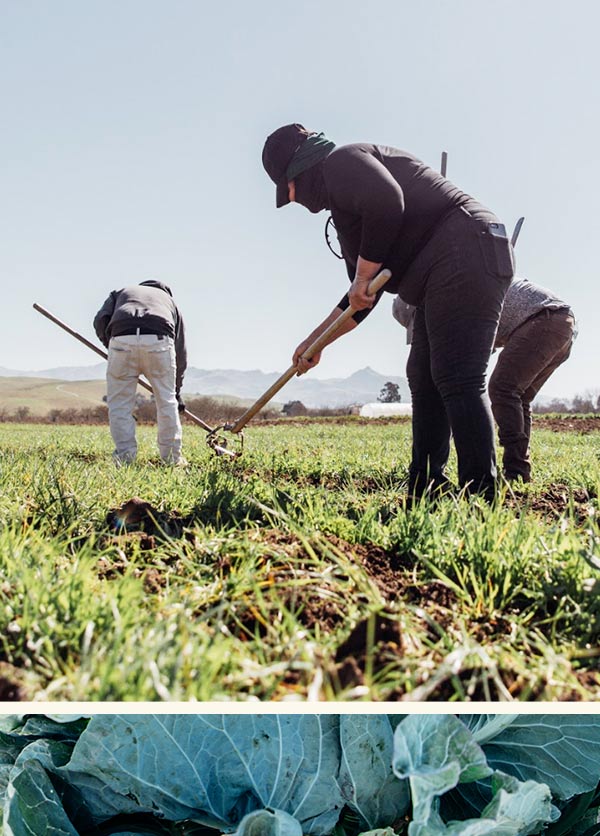
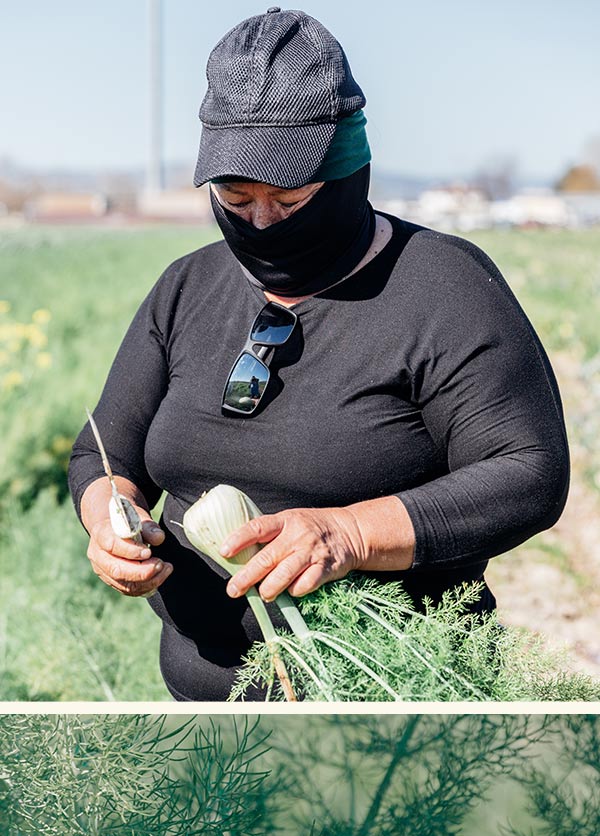
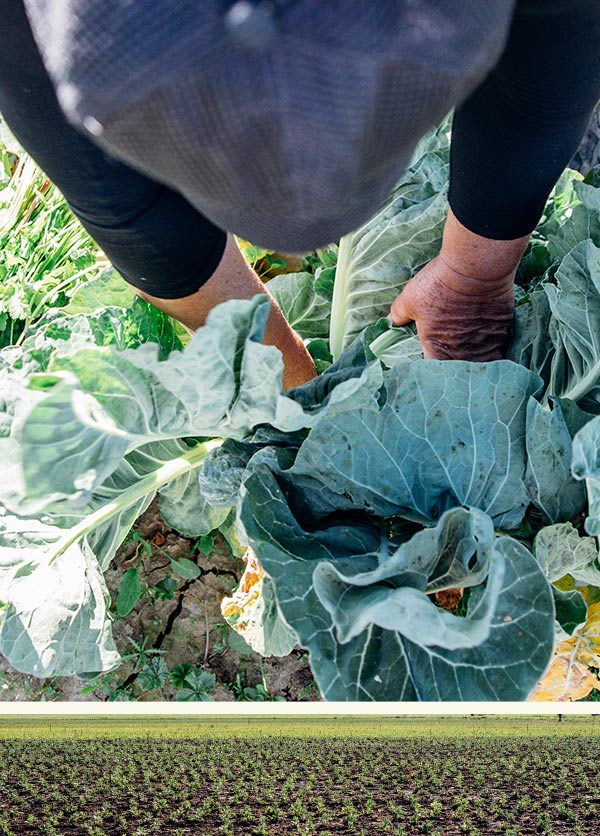
These systemic barriers bind migrant farmers to the chains of Industrial Agriculture and large-scale corporations. Maria Catalán is living proof of how migrant farmers benefit their communities, food security, and hold the power to create an equitable food system for us all. After graduating from the 6-year program, Maria became the first Latina migrant farmworker to own and operate a certified organic farm in the United States and the first Latina to distribute organic produce through community-supported agriculture (CSA). “I started to dream. My dream was for my kids and grandkids to have the same abundance that I had growing up. That they were free, that they had food, and that they had land. People thought I was crazy because most immigrants work for large company farms, and their kids stay back in tiny rooms filled with 12 or more people.”
Since 2001, Maria and her family have run Catalán Family Farms on fifteen acres of land in Hollister, California. Maria still feels that her most outstanding achievement is feeding and providing prosperity for her children and grandchildren. “My grandchildren all grew up on the ranch, eating plenty of good food, running along the tomatoes and eating strawberries from the vines. They grew up learning how to love the land and take care of her; they know how to take care of the air, the water, the soil. For me, that was my dream and I achieved it.”
This feature was written by Maya Harrison, contributing member of the Farmer’s Footprint Writer’s Circle.
Video and photography by Leia Marasovich.
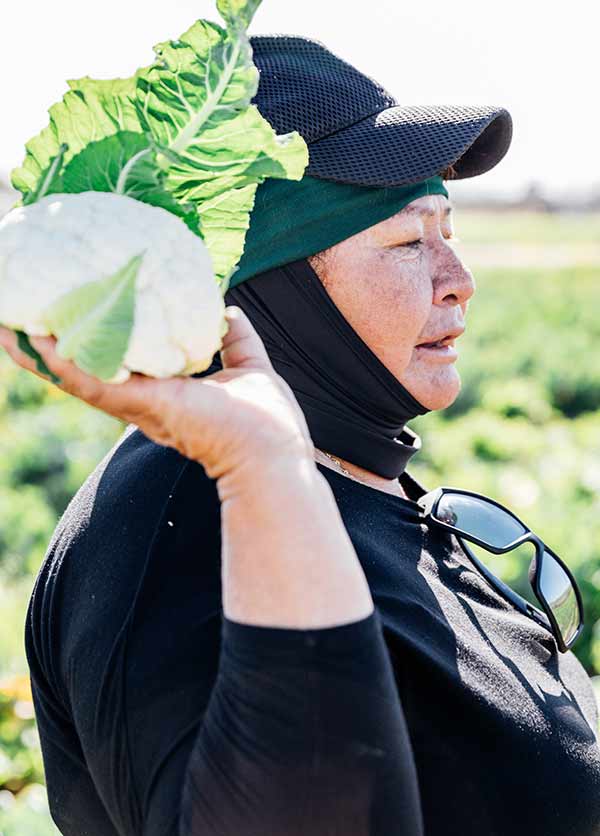
Support
MARIA CATALÁN
& Her Efforts:
TO DONATE
TAKE ACTION, SUPPORT + LEARN ABOUT FARMWORKER RIGHTS
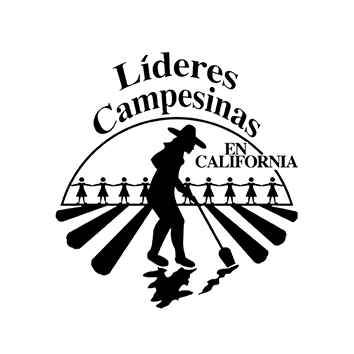
Lideres Campesinas
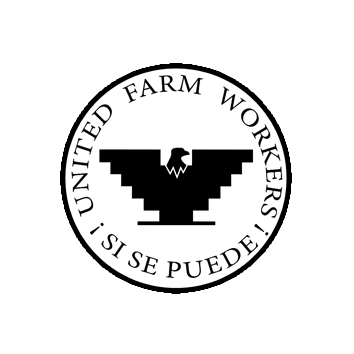
United Farm Workers of America
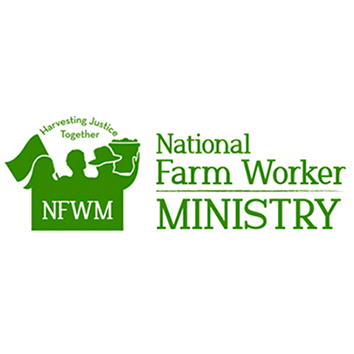
National Farm Worker Ministry
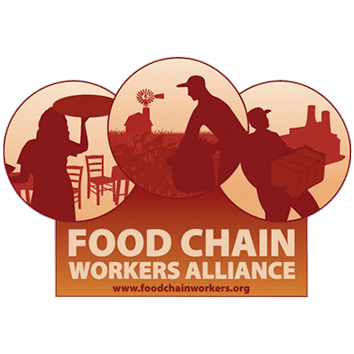
Food Chain Workers Alliance

A Growing Culture
